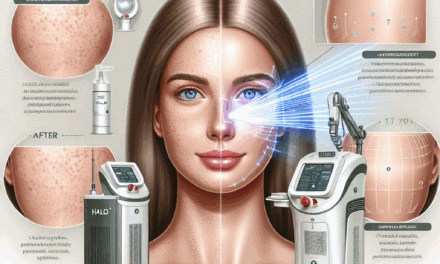Unleashing Confidence: The Transformative Impact of Self-Care

In today’s fast-paced world, the concept of self-care has gained significant attention as a means to enhance personal well-being and confidence. Self-care is not merely about indulgence; it is a comprehensive approach to nurturing one’s physical, mental, and emotional health. This article explores the transformative impact of self-care on confidence, delving into various aspects that contribute to a more empowered and self-assured life.
The Foundation of Self-Care: Understanding Its Importance
Self-care is often misunderstood as a luxury or an act of selfishness. However, it is a fundamental practice that lays the groundwork for a healthy and balanced life. By prioritizing self-care, individuals can cultivate a strong sense of self-worth and confidence.
At its core, self-care involves taking deliberate actions to maintain and improve one’s health. This includes activities that promote physical well-being, such as regular exercise, a balanced diet, and adequate sleep. It also encompasses mental and emotional practices like mindfulness, stress management, and setting boundaries.
Research has shown that self-care is crucial for reducing stress and preventing burnout. According to a study published in the Journal of Occupational Health Psychology, individuals who engage in regular self-care activities report lower levels of stress and higher job satisfaction. This, in turn, boosts their confidence in handling work-related challenges.
Moreover, self-care fosters resilience, enabling individuals to bounce back from setbacks with greater ease. By nurturing their physical and mental health, people become better equipped to face life’s adversities, which enhances their overall confidence.
- Physical self-care: Exercise, nutrition, sleep
- Mental self-care: Mindfulness, stress management
- Emotional self-care: Setting boundaries, self-compassion
Physical Self-Care: Building a Strong Foundation
Physical self-care is a critical component of overall well-being and confidence. It involves taking care of the body through regular exercise, proper nutrition, and sufficient rest. These practices not only improve physical health but also have a profound impact on mental and emotional well-being.
Exercise is a powerful tool for boosting confidence. Engaging in physical activity releases endorphins, which are known as “feel-good” hormones. These chemicals help reduce stress, anxiety, and depression, leading to an improved mood and increased self-esteem. A study published in the Journal of Health Psychology found that individuals who exercise regularly report higher levels of self-confidence and body satisfaction.
Nutrition also plays a vital role in physical self-care. A balanced diet provides the necessary nutrients for optimal brain function, energy levels, and overall health. Consuming a variety of fruits, vegetables, whole grains, and lean proteins can enhance cognitive function and improve mood, contributing to greater confidence.
Sleep is another essential aspect of physical self-care. Adequate rest is crucial for cognitive performance, emotional regulation, and overall well-being. According to the National Sleep Foundation, adults should aim for 7-9 hours of sleep per night. Quality sleep enhances focus, decision-making, and emotional resilience, all of which are vital for building confidence.
- Exercise: Endorphin release, improved mood
- Nutrition: Brain function, energy levels
- Sleep: Cognitive performance, emotional regulation
Mental Self-Care: Cultivating a Positive Mindset
Mental self-care involves practices that nurture the mind and promote a positive outlook on life. By prioritizing mental well-being, individuals can develop a strong sense of self-awareness and confidence.
Mindfulness is a powerful mental self-care practice that involves being present in the moment without judgment. It helps individuals become more aware of their thoughts and emotions, allowing them to respond to situations with clarity and composure. Research published in the Journal of Personality and Social Psychology suggests that mindfulness is associated with increased self-esteem and reduced anxiety.
Stress management is another crucial aspect of mental self-care. Chronic stress can negatively impact mental health and erode confidence. Techniques such as deep breathing, meditation, and journaling can help individuals manage stress effectively. A study in the Journal of Clinical Psychology found that individuals who practice stress-reduction techniques report higher levels of self-confidence and emotional resilience.
Setting boundaries is an essential component of mental self-care. It involves recognizing one’s limits and communicating them effectively to others. By setting boundaries, individuals can protect their mental and emotional well-being, leading to increased self-respect and confidence.
- Mindfulness: Self-awareness, reduced anxiety
- Stress management: Techniques for resilience
- Setting boundaries: Protecting mental well-being
Emotional Self-Care: Nurturing Inner Strength
Emotional self-care focuses on understanding and managing emotions to foster inner strength and confidence. It involves practices that promote self-compassion, emotional regulation, and healthy relationships.
Self-compassion is a key aspect of emotional self-care. It involves treating oneself with kindness and understanding, especially during difficult times. Research published in the Journal of Personality and Social Psychology indicates that self-compassion is linked to higher self-esteem and greater emotional resilience.
Emotional regulation is another important component of emotional self-care. It involves recognizing and managing emotions in a healthy way. Techniques such as cognitive reframing, emotional expression, and seeking support from others can help individuals regulate their emotions effectively. A study in the Journal of Counseling Psychology found that individuals who practice emotional regulation report higher levels of self-confidence and life satisfaction.
Building healthy relationships is also crucial for emotional self-care. Positive social connections provide support, validation, and a sense of belonging, all of which contribute to increased confidence. According to a study published in the Journal of Social and Personal Relationships, individuals with strong social support networks report higher levels of self-esteem and overall well-being.
- Self-compassion: Kindness and understanding
- Emotional regulation: Managing emotions effectively
- Healthy relationships: Support and validation
The Ripple Effect: How Self-Care Transforms Confidence
The transformative impact of self-care on confidence extends beyond individual well-being. It creates a ripple effect that influences various aspects of life, including personal relationships, professional success, and overall happiness.
When individuals prioritize self-care, they become more self-assured and assertive in their interactions with others. This newfound confidence enhances communication skills, leading to healthier and more fulfilling relationships. A study published in the Journal of Social Psychology found that individuals who engage in self-care practices report higher levels of relationship satisfaction and social support.
In the professional realm, self-care can lead to increased productivity and career success. Confident individuals are more likely to take on new challenges, seek opportunities for growth, and advocate for themselves




